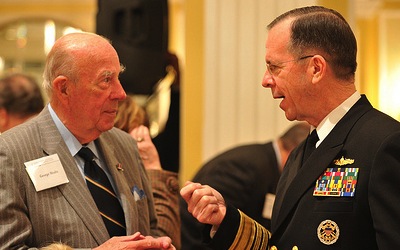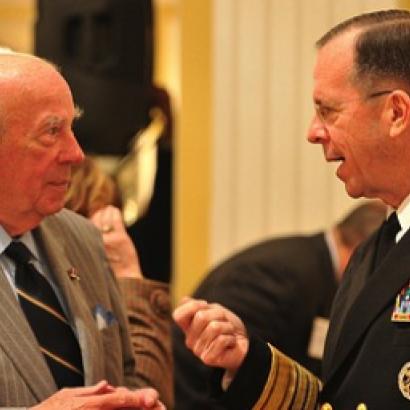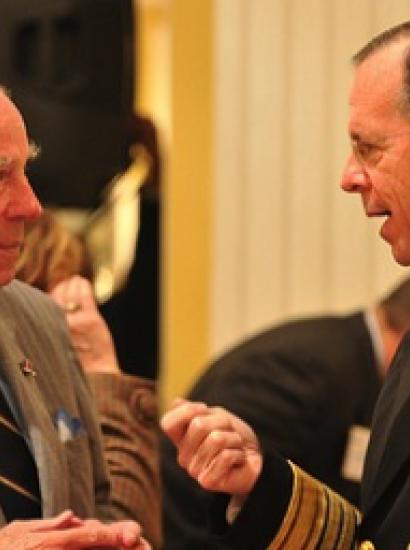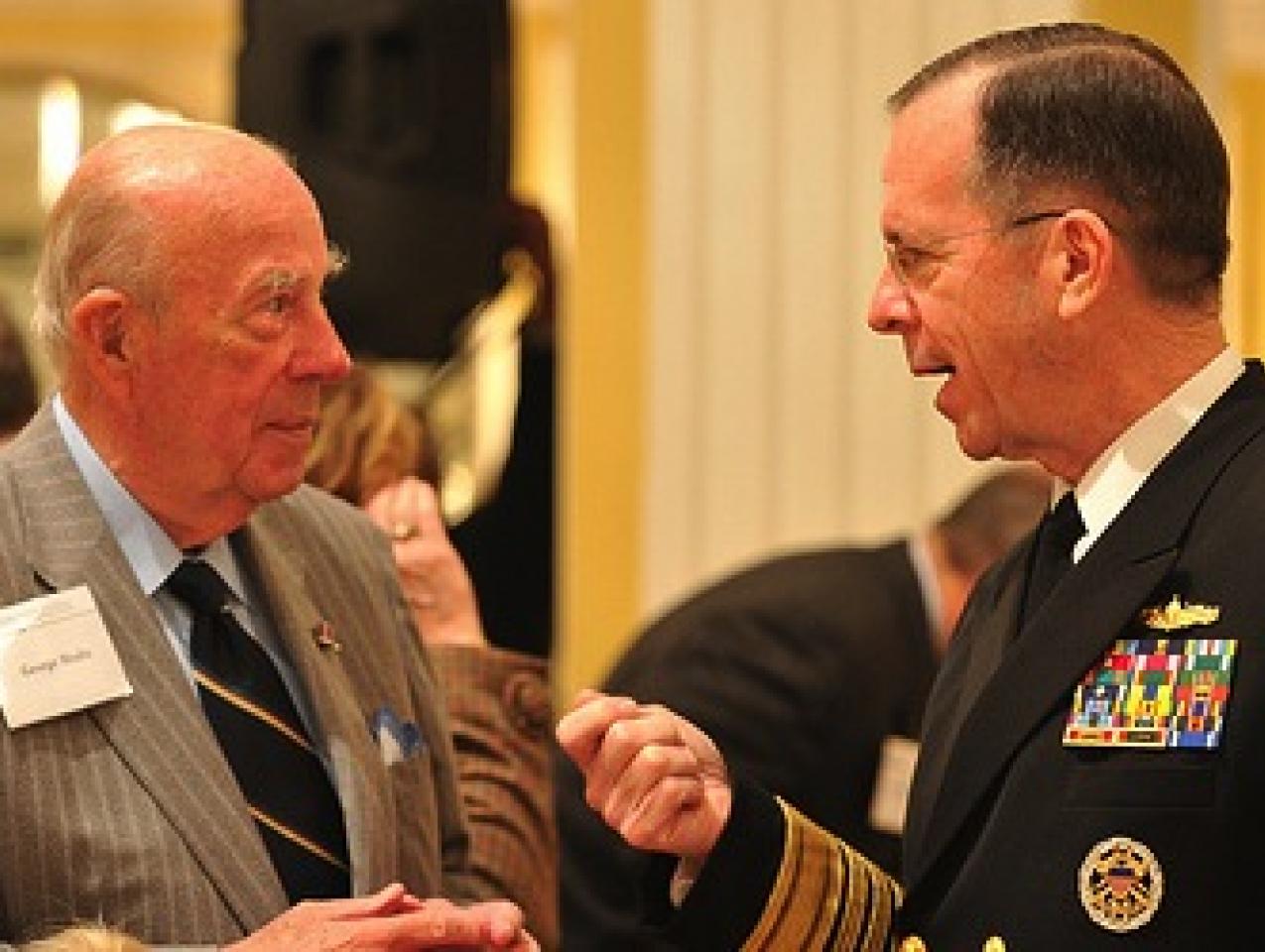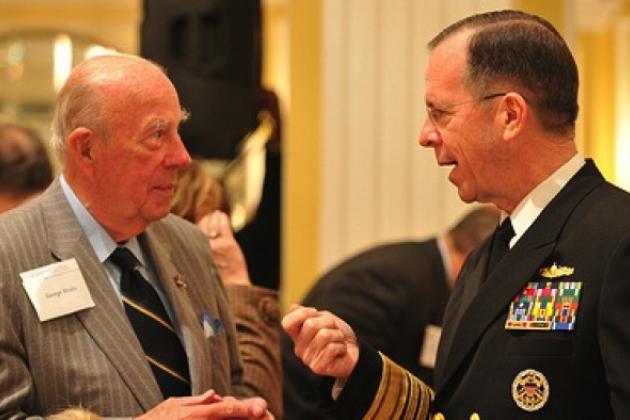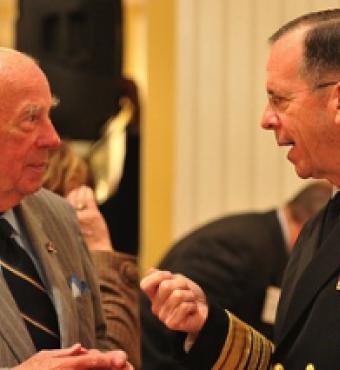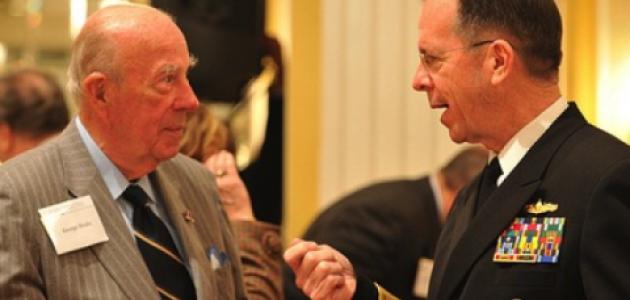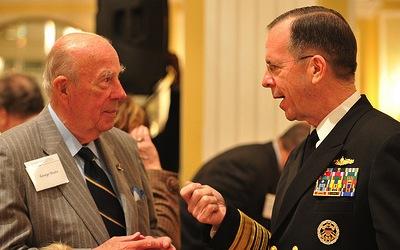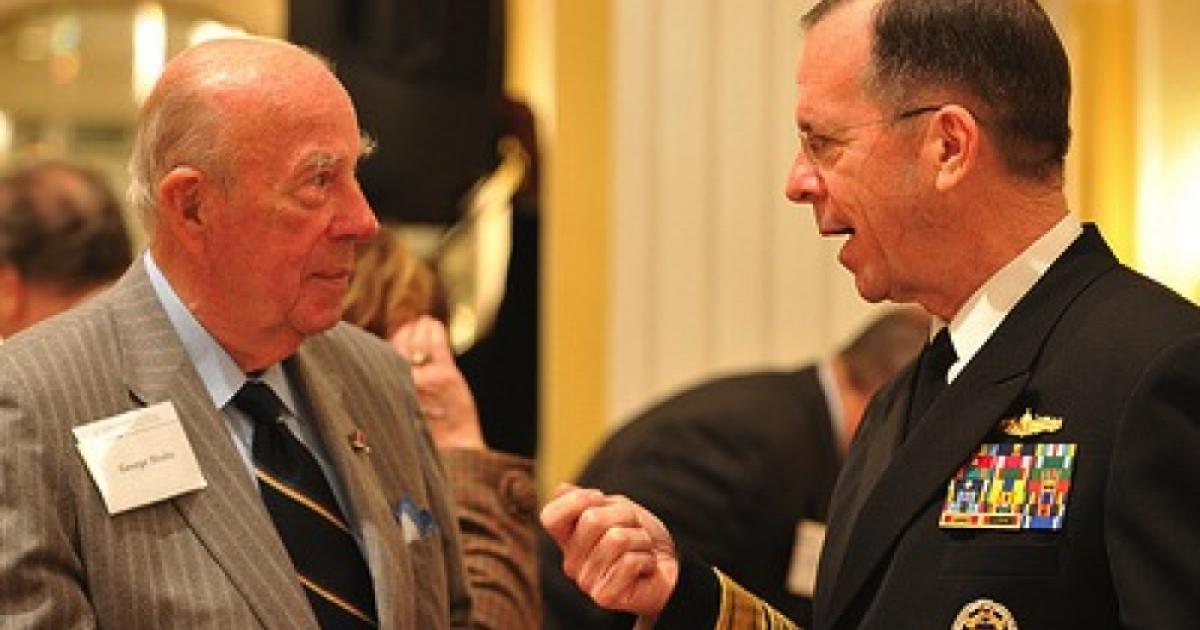Editor's note: The following essay is the sixth in a seven-part series of excerpts from George P. Shultz's new book Issues on My Mind: Strategies for the Future. Defining Ideas will feature these short excerpts from the book, accompanied by video interviews of Secretary Shultz.
Sometimes small events have a major impact on your thinking. I remember the day my Marine Corps boot camp drill sergeant handed me my rifle. He said, “This is your best friend. Take good care of it and remember: never point this rifle at anybody unless you’re willing to pull the trigger.” The lesson—no empty threats—was one that I have never forgotten, and its relevance to the conduct of diplomacy is obvious, yet often ignored. If you say that something is unacceptable but you are unwilling to impose consequences when it happens, your words will lose their meaning and you will lose credibility.
I also recall a time during the war when my Marine unit had taken a little island in the Pacific. We knew that natives on a nearby island made grass skirts, log canoes, and other souvenirs that we liked to send home. Occasionally, Marines were allowed to go to the island for two hours, so they wanted to make deals quickly. But I observed that the natives enjoyed the process of bargaining so they wanted to keep the process alive. Guess what happened to the prices of those souvenirs? The negotiator who knows that you are desperate for a deal will have the advantage.
I kept this lesson in mind during my years of government service as I dealt with the Soviet Union and a number of other countries. Testifying before a committee of Congress, I was occasionally asked if I was concerned that the United States had not made a major deal with the Soviets. I always replied that we were only interested in good deals, and good deals were not struck when the other party knew you were in a hurry. One of my colleagues, CIA Director Bill Casey, gave me similar advice when he cautioned, “Don’t be a Pilgrim.” When I asked what he meant, he replied, “Don’t be an early settler!”
These are just a few examples of lessons gleaned from early experiences that have been useful throughout my career. They hint at how important it is for leaders to think carefully about their approach to negotiations and foreign policy.
Early in my tenure as secretary of state, I addressed the UN General Assembly on four basic principles for action in US foreign policy. I could make the same speech today but, unfortunately, I would have to adjust some of the wording.
1. Start from realism.
If we are to change the world we must first understand it. We must face reality—with all its anguish and all its opportunities.
Much of present day reality is unpleasant. To describe conditions as we see them is not to seek confrontation. Far from it. Our purpose is to avoid misunderstanding and to create the necessary preconditions for change. And so, when we see aggression, we will call it aggression. When we see subversion, we will call it subversion. When we see repression, we will call it repression. When we see opportunity, we will work hard to turn that opening into constructive reality.
2. Act from strength.
[Today, we are allowing our strength to slip away. But then, with the buildup of our capability in the Reagan years, I could speak with confidence.] The bulwark of America’s strength is military power for peace. The American people have never accepted weakness, nor hesitancy, nor abdication. We will not put our destiny into the hands of the ruthless. Americans today are emphatically united on the necessity of a strong defense. This year’s defense budget will ensure that the United States will help its friends and allies defend themselves—to make sure that peace is seen clearly by all to be the only feasible course in world affairs. [I wish I could be so confident today.]
The engine of America’s strength is a sound economy. The United States, with its vast human and scientific resources, can survive an era of economic strife and decay. But our moral commitment and our self-interest require us to use our technological and productive abilities to build lasting prosperity at home and to contribute to a sound economic situation abroad.
President Reagan has instituted a bold program to get the American economy moving. Our rate of inflation is down markedly, and we will keep it down. This will add stability to the value of the dollar and give greater confidence to international financial markets.
The bedrock of our strength is our moral and spiritual character. The sources of true strength lie deeper than economic or military power—they lie in the dedication of a free people which knows its responsibility. America’s institutions are those of freedom accessible to every person and of government as the accountable servant of the people. We must not step away from this commitment.
3. Fair engagement
The world has work to do for the realists, the pragmatists, and the free. With a clear understanding of the troubled circumstances of the hour and with a strengthened ability to act, we need, as well, the vision to see beyond the immediate present.
All of us here represent nations which must understand and accept the imperative of fair engagement on the issues before us and, beyond that, of common effort toward shared goals. Whether we are seeking to bring peace to regional conflict or a resolution of commercial differences, the time of imposed solutions has passed. Conquest, pressure, and acquiescence under duress were common in decades not long past, but not today. Not everybody who wants his concerns addressed will find us automatically receptive. But when negotiations are in order, America is prepared to go to work on the global agenda and to do so in a way that all may emerge better off and more secure than before.
4. Conduct negotiations on the basis of the US agenda and with a belief that progress is possible.
We manage our problems more intelligently, and with greater mutual understanding, when we can bring ourselves to recognize them as expressions of mankind’s basic dilemma. We are seldom confronted with simple issues of right and wrong, between good and evil. Only those who do not bear the direct burden of responsibility for decision and action can indulge themselves in the denial of that reality. The task of statesmanship is to mediate between two—or several—causes, each of which often has a legitimate claim, and to identify where the United States interacts, and where and how to advance the US agenda.
It is on this foundation that the United States stands ready to try to solve the problems of our time—to overcome chaos, deprivation, and the heightened dangers of an era in which ideas and cultures too often tend to clash and technologies threaten to outpace our institutions of control.







